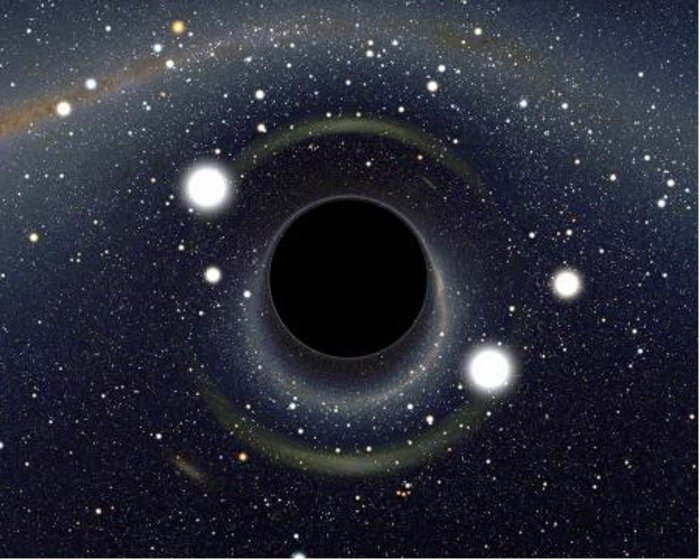A computer-generated image of the light distortions created by a black hole. Credit: Alain Riazuelo, IAP/UPMC/CNRS
PASADENA, Calif., May 6 (UPI) -- A new kind of cosmic flash may signal something never observed before, the birth of a black hole, a scientist at the California Institute of Technology says.
Tony Piro, a postdoctoral researcher in astrophysics, say his analysis suggest that just before the formation of a black hole -- when a dying star becomes an object so dense not even light can escape its gravity -- the star may generate a distinct burst of light that would allow astronomers to witness the birth of a new black hole for the first time.
Some dying stars that end in black holes explode as gamma-ray bursts, among the most energetic phenomena in the universe, but those cases are rare and require exotic circumstances, Piro wrote in the May 1 issue of Astrophysical Journal Letters.
"We don't think most run-of-the-mill black holes are created that way," he said.
Many astronomers say they believe in most cases a dying star produces a black hole without a bang or a flash, and instead the star would simply vanish from the sky, an event dubbed an unnova.
"You don't see a burst," Piro said. "You see a disappearance."
Just before a black hole is formed, researchers say, the dying star briefly become a neutron star, sending out a shock wave that would travel through its outer layers at more than 2 million miles per hour.
Piro said he estimated when the shock wave hits the star's surface it might create a distinctive flash of light.
Shining for 3 to 10 days before fading, the flash would be visible in optical wavelengths.
While such a flash would be dim compared to exploding stars called supernovae, it would be luminous enough to be detectable in nearby galaxies, Piro said.
"That flash is going to be very bright, and it gives us the best chance for actually observing that this event occurred," he said. "This is what you really want to look for."















